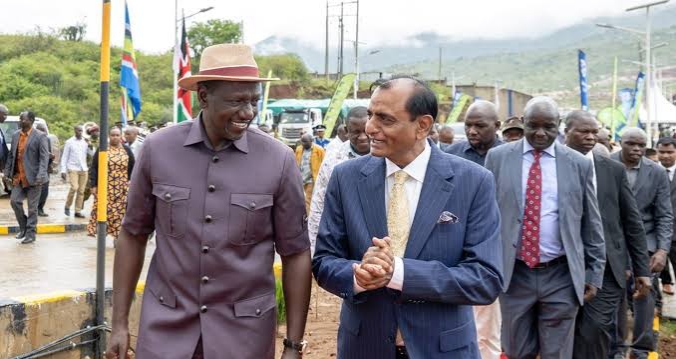A bombshell email has exposed allegations of tax evasion and corporate malpractice involving one of Kenya’s largest industrial groups, the Devki Group.
The whistleblower email accuses the conglomerate’s subsidiaries, Devki Steel Mills Limited and Cemtech Limited, of evading taxes amounting to Kshs. 1.6 billion and Kshs. 2.4 billion, respectively.
The email claims the group used threats and intimidation to pressure Kenya Revenue Authority (KRA) officials into overlooking the dues. Those who resisted allegedly faced threats of dismissal or investigations by anti-corruption agencies.
The email also alleges that these tactics were not confined to tax issues. One of Devki’s subsidiaries, Simba Cement, was reportedly caught selling underweight 47kg cement bags instead of the standard 50kg. Despite this breach of Kenya Bureau of Standards (KEBS) regulations, the email states KEBS officials were silenced under threat of job loss.

Narendra Raval and William Ruto
Even competitors fear retaliation, with some contemplating leaving the Kenyan market due to the monopolistic environment allegedly fostered by Devki Group. Complaints of substandard steel products from Devki’s mills have also surfaced, reportedly returned by contractors and Chinese firms engaged in large-scale projects.
“This culture of threats and coercion targeting public officials and industry players perpetuates impunity. Regulators like KRA and KEBS must be allowed to act independently.”
While President William Ruto is said to have taken a hard stance against tax waivers, the allegations paint a stark picture of systemic manipulation.
If proven, these claims raise critical questions about corporate ethics and the strength of Kenya’s regulatory frameworks. The public and affected industries now await decisive action from authorities to address these allegations and restore trust in public institutions.



